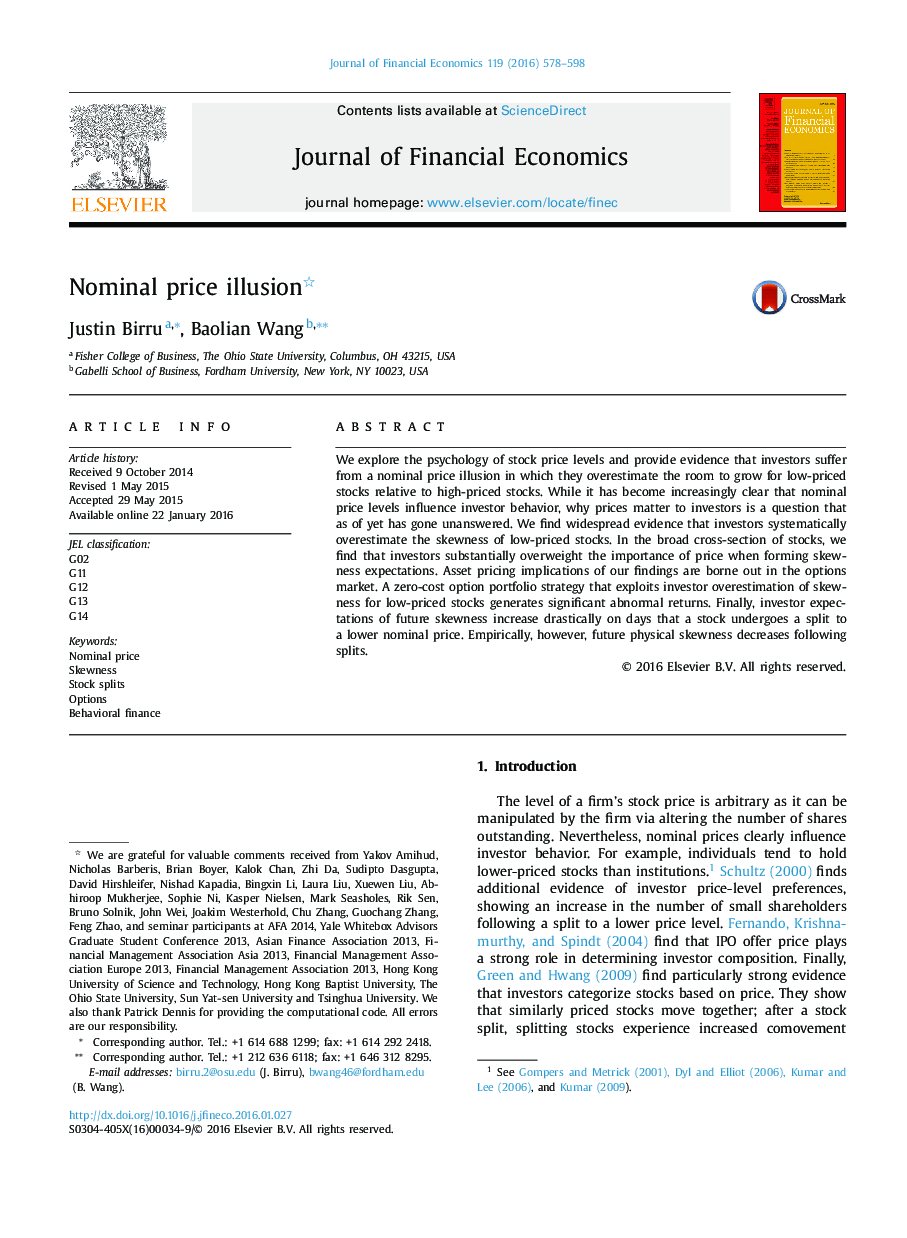| Article ID | Journal | Published Year | Pages | File Type |
|---|---|---|---|---|
| 10475826 | Journal of Financial Economics | 2016 | 21 Pages |
Abstract
We explore the psychology of stock price levels and provide evidence that investors suffer from a nominal price illusion in which they overestimate the room to grow for low-priced stocks relative to high-priced stocks. While it has become increasingly clear that nominal price levels influence investor behavior, why prices matter to investors is a question that as of yet has gone unanswered. We find widespread evidence that investors systematically overestimate the skewness of low-priced stocks. In the broad cross-section of stocks, we find that investors substantially overweight the importance of price when forming skewness expectations. Asset pricing implications of our findings are borne out in the options market. A zero-cost option portfolio strategy that exploits investor overestimation of skewness for low-priced stocks generates significant abnormal returns. Finally, investor expectations of future skewness increase drastically on days that a stock undergoes a split to a lower nominal price. Empirically, however, future physical skewness decreases following splits.
Related Topics
Social Sciences and Humanities
Business, Management and Accounting
Accounting
Authors
Justin Birru, Baolian Wang,
